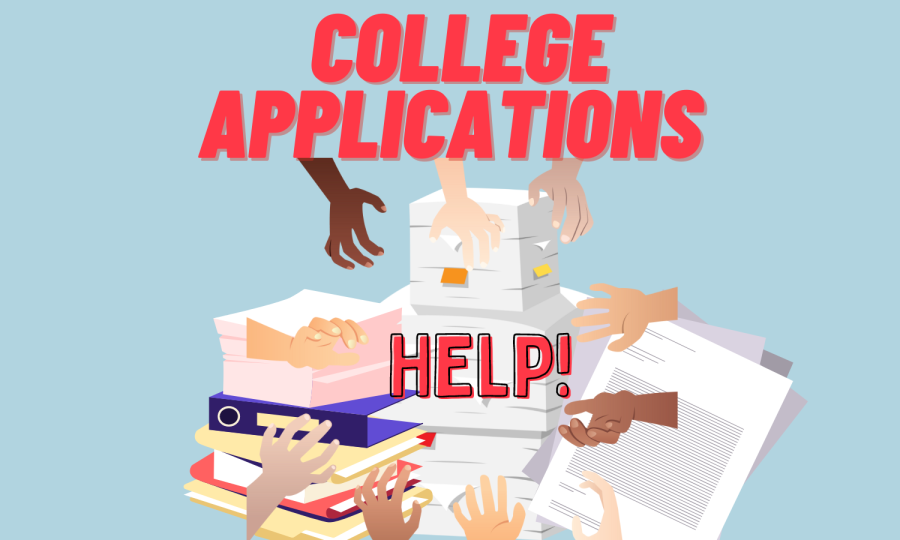
Decoding College Applications
Decoding College Applications
The college application process can feel like a daunting maze, but fear not!
We’re here to break it down into manageable steps, ensuring that you approach this pivotal moment in your life with confidence and clarity.
Understanding the Basics of College Applications
To begin things off, let’s get to know the essentials. College applications are the key to gaining entry into your desired institution of higher earning. They encompass various components, including your personal information, academic history, standardized test scores, extracurricular activities, essays, recommendation letters, and, occasionally, interviews. Collectively, these elements provide admissions committees with a comprehensive picture of who you are as a student and as an individual.
Selecting the Right Schools for You
Choosing where to apply is a critical decision that warrants thoughtful consideration. Your selection should align with your academic aspirations, personal preferences, and the unique strengths of each institution. It’s essential to compile a well-rounded list of colleges, encompassing reach schools (where admission may be challenging), match schools (where your academic profile aligns with the school’s typical admitted student), and safety schools (where your academic credentials exceed the admission requirements).
Gathering Vital Application Materials
Once you’ve pinpointed your target schools, it’s time to start collecting the necessary documents. You’ll require your high school transcripts, standardized test scores (like the SAT or ACT), letters of recommendation from teachers or mentors, and any supplementary materials specified by your chosen institutions. Request your transcripts and letters of recommendation well in advance to avoid last-minute anxiety.
Crafting a Compelling Personal Statement
The personal statement, often referred to as the college essay, is your chance to shine. This piece of writing allows you to present yourself beyond the numbers and statistics. It’s an opportunity to share your story, values, aspirations, and what makes you unique. Take the time to brainstorm, draft, and revise your essay meticulously. Consider seeking feedback from teachers, peers, or mentors to ensure it’s polished to perfection.
Navigating Standardized Tests and Academic Records
Your standardized test scores and academic records are vital components of your application. Most colleges require either SAT or ACT scores, and some may request subject tests. Make sure to register for these exams well in advance and allow ample time for preparation. Additionally, maintain strong academic performance throughout high school to bolster your application’s academic credentials.
Excelling in Extracurricular Activities
Beyond academics, your involvement in extracurricular activities plays a significant role in your application. Admissions committees value quality over quantity, so focus on activities you are genuinely passionate about. Whether it’s sports, clubs, community service, or leadership roles, highlight your commitment and impact in these areas.
Securing Outstanding Letters of Recommendation
Letters of recommendation provide valuable insight into your character and abilities. Choose individuals who know you well and can speak to your strengths. Approach potential recommenders early, providing them with ample time to craft thoughtful and personalized letters that emphasize your qualities and potential.
Diving into College Interviews
While not all colleges require interviews, some offer them as part of the application process. If given the opportunity, approach interviews with enthusiasm and preparation. Research common interview questions, practice your responses, and be ready to discuss your interests, goals, and why you’re a perfect fit for the institution.
Tackling Supplemental Essays
Many colleges have additional essay prompts that delve into specific aspects of their institution. These supplemental essays provide a chance to demonstrate your genuine interest and understanding of the school. Tailor your responses to each college, showcasing how you would contribute to and benefit from their community.
Managing Application Deadlines
Meeting deadlines is non-negotiable in the college application process. Keep a detailed calendar of application due dates, standardized test registration deadlines, and financial aid submission requirements. Missing a deadline can jeopardize your chances of admission and scholarship opportunities.
Seeking Financial Aid and Scholarships
College can be expensive, but financial aid and scholarships can make it more accessible. Research financial aid options offered by your chosen colleges and explore external scholarship opportunities. Completing the Free Application for Federal Student Aid (FAFSA) and other required financial aid forms is a crucial step in securing financial assistance.
Ensuring a Strong Finish in High School
Your academic journey doesn’t end when you submit your applications.
Maintain a strong academic performance throughout your senior year, as colleges often request mid-year or final transcripts. Finish high school on a high note to reinforce the positive impression you’ve made on your application.
Submitting Your Applications
Finally, when it’s time to submit your applications, do so with care and attention to detail. Double-check that all materials are complete and accurate.
Pay application fees or request fee waivers when necessary. After hitting the submit button, keep a close eye on your email for confirmations and updates from colleges.
Conclusion: Your Journey Awaits
As you embark on this adventure of college applications, remember that each step is an opportunity for self-discovery and growth. Embrace the process, stay organized, and put your best foot forward. Your hard work, dedication, and perseverance will pave the way to a bright future filled with exciting educational opportunities. Best of luck on your college application journey!

Breaking it up definitely makes the process easier